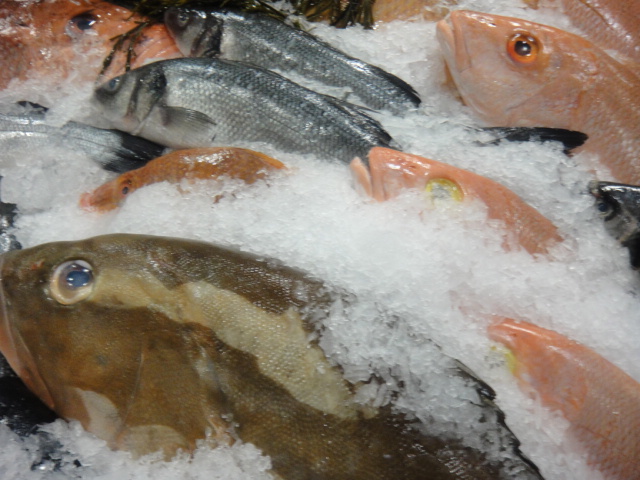 The annual International Boston Seafood Show is scheduled March 10-12. In addition to vendor exhibits, lectures, and networking, over 20,000 buyers, suppliers, and other seafood professionals will dish all things fish.
The annual International Boston Seafood Show is scheduled March 10-12. In addition to vendor exhibits, lectures, and networking, over 20,000 buyers, suppliers, and other seafood professionals will dish all things fish.
While I not attending the IBSS this year, I’ll be sharing updates here and on Twitter next week.
Sure to be on the agenda is this timely news release, H.R. 6200 Safety and Fraud Enforcement for Seafood Act. It’s about the ongoing effort to combat seafood fraud, more commonly known as mislabeled fish. Thanks to the good folks at Marine Fish Conservation Network for bringing this to my attention today.
Meanwhile, read on, and support the bill to combat seafood fraud.
Markey Launches New Bill to Combat Fish Fraud
National Studies Show Rampant Fish Mislabeling that Cheats Fishermen, Consumers WASHINGTON (March 6, 2013) – Rep. Ed Markey (D-Mass.) today introduced a new bipartisan version of his legislation to combat rampant seafood fraud, a nationwide epidemic that cheats fishermen and consumers, while posing health risks to pregnant mothers and others. The legislation responds to studies showing most recently that seafood is mislabeled 33 percent of the time in restaurants, supermarkets, and other retail locations across the United States. This second version of Rep. Markey’s legislation reflects intensive discussions with fishermen, consumer and conservation groups, and federal agencies that improved the original legislation.
“Fish fraud is a national problem that needs a national solution. This bill finally tells the seafood swindlers and fish fraudsters that we will protect America’s fishermen and consumers from Massachusetts to Alaska,” said Rep. Markey, the top Democrat on the Natural Resources Committee. “From tackle to table, this bill makes the entire seafood supply chain more transparent and trustworthy.”
To prevent seafood fraud, Rep. Markey’s SAFE Seafood Act, formally the Safety and Fraud Enforcement for Seafood Act, requires information that is already collected by U.S. fishermen — such as species name, catch location, and harvest method — to ‘follow the fish,’ and be made available to consumers. It also requires foreign exporters of seafood to the United States to provide equivalent documentation.
The bill also expands the ability of the Food and Drug Administration (FDA) and the National Oceanic and Atmospheric Administration (NOAA) to refuse entry of unsafe or fraudulent seafood shipments, and allows NOAA to levy civil penalties against violators under the Magnuson-Stevens Fishery Conservation and Management Act.
In addition to the fraud prevention measures, THE SAFE Seafood ACT addresses concerns over seafood safety raised by the U.S. Government Accountability Office (GAO) in a 2011 report by requiring cooperation and progress reporting. The report found that a lack of coordination between FDA and NOAA is resulting in needless duplication of seafood safety inspections at a time when resources are only allowing for 2 percent of seafood imports to be examined for safety.
Rep. Markey was joined in the legislation by original co-sponsors Walter Jones (R-N.C.), John Tierney (D-Mass.), Bill Keating (D-Mass.), and Lois Capps (D-Calif.) and Jo Bonner (R-Ala.). Senator Mark Begich (D-Alaska) will introduce companion legislation in the Senate.
A more detailed summary of the legislation is available HERE.
A summary of the major changes to the bill is available HERE.
Contact: Eben Burnham-Snyder, Rep. Ed Markey, 202-225-2836 or 202-494-4486








